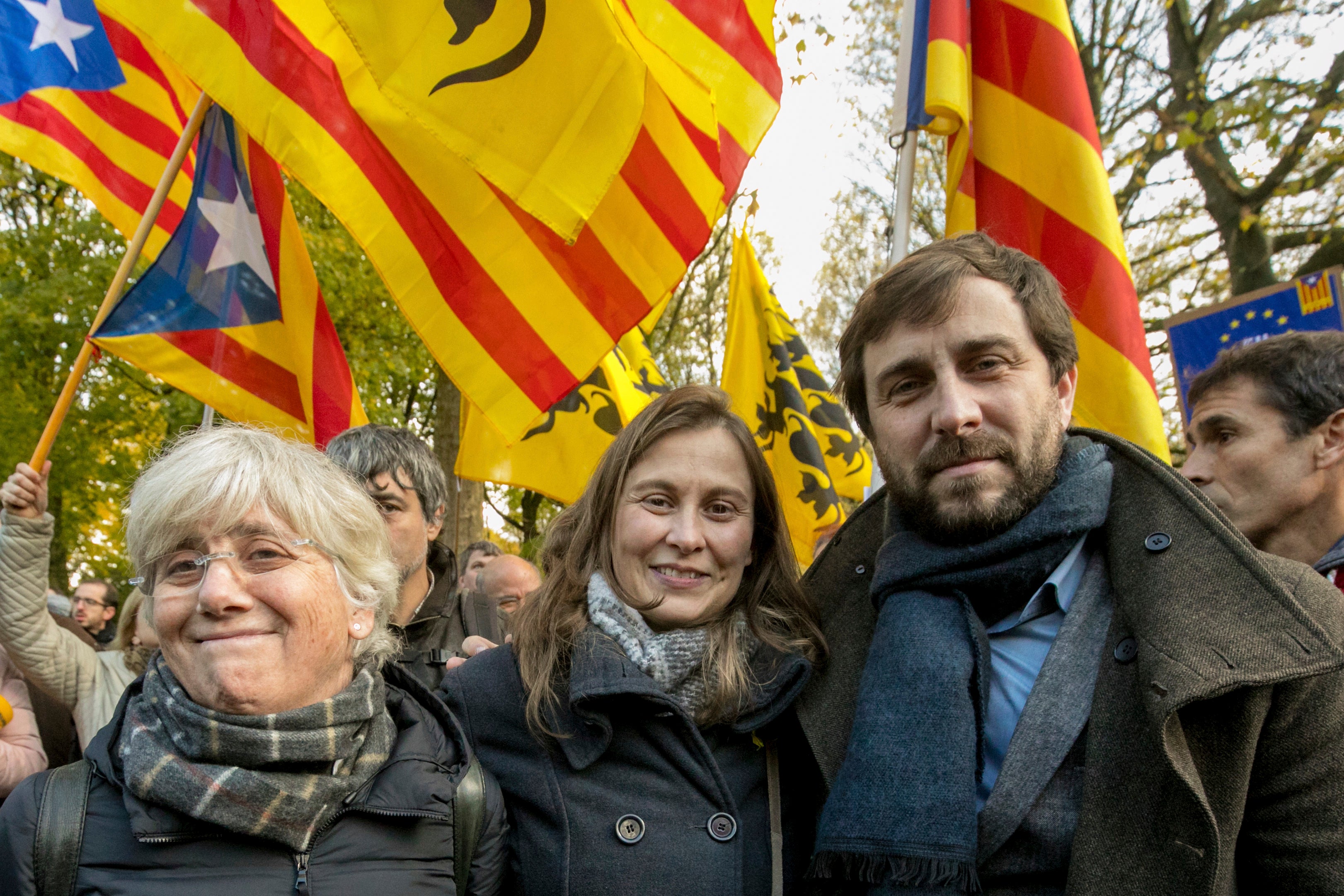Catalan separatist returns from Belgium to face Spanish law
One of the leaders of Catalonia's failed 2017 secession bid has returned to Spain to face up to justice

Your support helps us to tell the story
From reproductive rights to climate change to Big Tech, The Independent is on the ground when the story is developing. Whether it's investigating the financials of Elon Musk's pro-Trump PAC or producing our latest documentary, 'The A Word', which shines a light on the American women fighting for reproductive rights, we know how important it is to parse out the facts from the messaging.
At such a critical moment in US history, we need reporters on the ground. Your donation allows us to keep sending journalists to speak to both sides of the story.
The Independent is trusted by Americans across the entire political spectrum. And unlike many other quality news outlets, we choose not to lock Americans out of our reporting and analysis with paywalls. We believe quality journalism should be available to everyone, paid for by those who can afford it.
Your support makes all the difference.Former Catalan government member Meritxell Serret handed herself into Spain’s Supreme Court on Thursday, three years after she fled to Belgium along with other associates who led Catalonia’s failed secession attempt.
A statement issued by judge Pablo Llarena said that Serret was released without bail after she turned herself into the Madrid-based court upon coming back to Spain from Brussels where she had resided since October 2017. Llarena set a hearing for Serret to be questioned on April 8.
Serret, 45, fled from Spain to Belgium in 2017 along with other members of the regional government of northeast Catalonia, including regional president Carles Puigdemont following his ineffective declaration of independence.
“We thought it was the best moment to take this step and send the message that we are here, looking for political solutions to political conflicts,” Serret said on exiting the court.
Serret, the former head of agriculture for Catalonia, faces charges of disobedience and misuse of public funds, although Llarena said that so far investigations haven't linked Serret to any financial irregularities.
If convicted of disobeying explicit court injunctions to not proceed with the breakaway bid, she would face a fine and being barred from public office for up to two years.
When Puigdemont fled Spain in October 2017 he was accompanied by Serret and six other members of the Catalan regional government, which was disbanded by Spain’s central authorities when their independence bid collapsed. Three of them returned shortly after to Spain, where they were tried and found guilty in a 2019 trial along with other separatist leaders who had remained in the country.
Serret is the first high-profile separatist to return since then.
She said that she intended to take the seat in the Catalan regional legislature she won in an election earlier this year.
Her return to Spain comes just days after Puigdemont, along with former regional ministers Toni Comín and Clara Ponsatí, were stripped of their immunity as European lawmakers by the European Parliament, where they won seats in 2019.
Puigdemont refused to return to Spain on claims that he could not get a fair trial.
The Catalan separatists have successfully fought extradition requests by Spain. The lifting of their immunity could pave the way for Llarena to try again.
Polls show that Catalonia's 7.5 million residents are equally split between those who want to go secede, and those who want to remain a part of Spain.